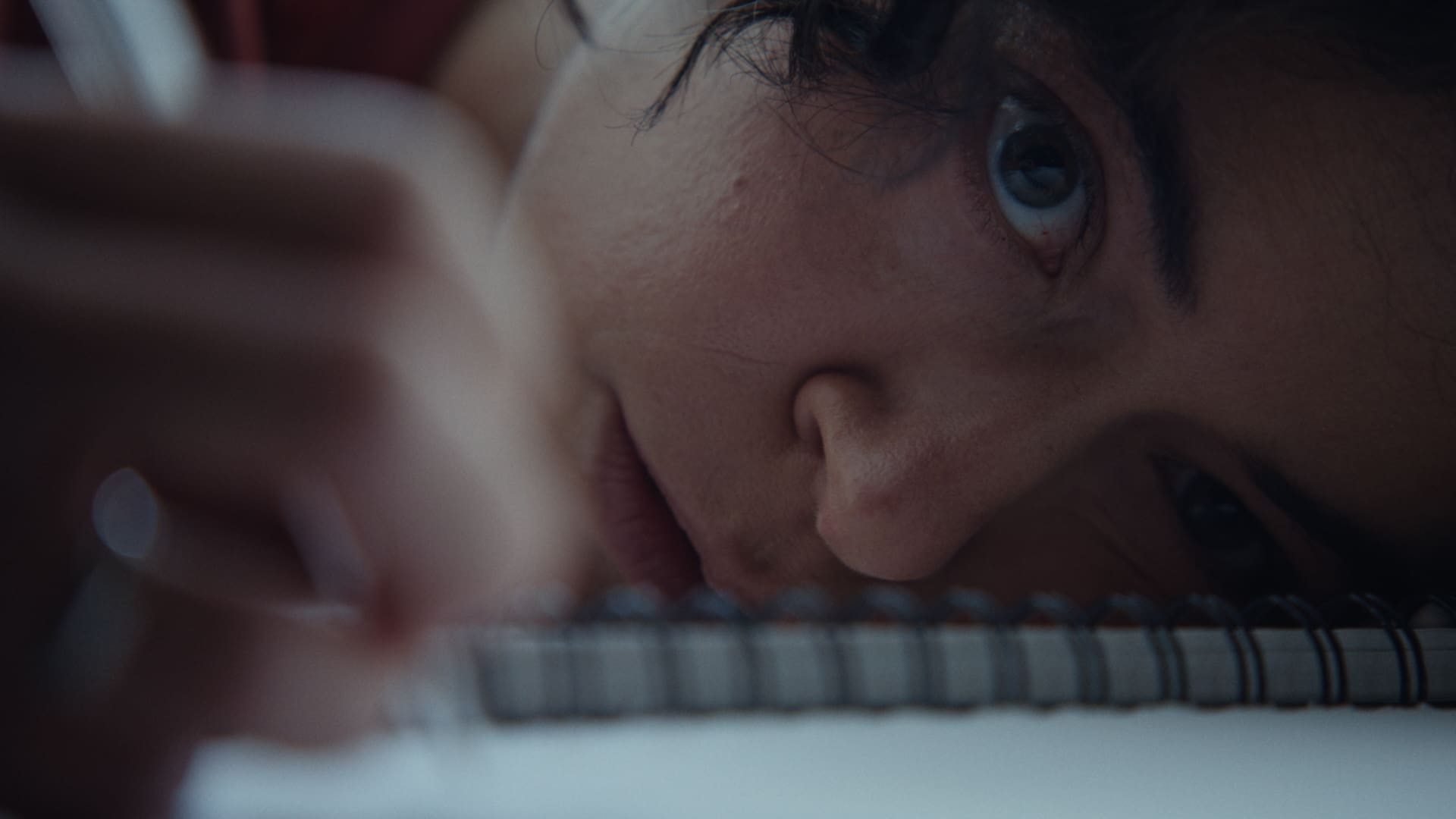
Even with so many diverse talents breaking into the horror genre lately, there’s no denying that director Oz Perkins is on a tear like no other. He’s hot off incredible films like last year’s Longlegs and his masterfully funny and absurdly bloody adaptation of Stephen King’s The Monkey earlier this year, and quickly making himself a distinct force in the genre. And, Perkins’s latest film, Keeper, further proves that—despite an approach that’ll leave viewers waiting for anything worthwhile.
The film is a modern folk-horror story centered on Liz (Tatianna Maslany), a woman who embarks with her boyfriend Malcolm (Rossif Sutherland) to a secluded cabin for a romantic getaway. However, there’s more terror than romance in the air as their presence at the cabin causes disturbing secrets to pour out. In terms of folk-horror, Perkins nails the atmosphere and utilizes this off-and-away setting really well. Although there’s a natural beauty to the forest and this lavish cabin that’s striking, there’s also this eeriness that permeates throughout. The sense of isolation is at an all-time high and Perkins uses some strong camerawork to make it feel like Liz is being watched wherever she is. Plus, there’s this supernatural connection to it all that’s deeply unsettling and effectively builds into the real horror that eventually reveals itself. On the surface, Perkins makes Keeper a perfect modern entry to folk-horror, but struggles to maintain its intrigue because of his slow approach.
At times, Keeper feels like a retreat to Perkins’s earlier works—like Gretal & Hansel—where the film’s slow burn can be its greatest enemy. Although there are some drips of horror fun sprinkled throughout, Keeper can get a little boring because it takes too long to reveal its true self. For the most part, you’re just spinning in the same circles of Liz questioning or being questioned about Malcolm’s intentions and actions. Or, you’re watching Liz float through these surreal dream sequences while being tormented by odd entities without much context. Honestly, you’re constantly trying to figure out what the hell is going on and where it’s all heading, and the detective work isn’t the easiest to navigate. With Keeper, Perkins loves throwing strange breadcrumbs to get in your head and constantly make you ask questions. Like what’s up with this cake that’s left for them or these flashes of other women throughout time? However, it’s rare that these hints clear things up, and you’re just hoping there’s a worthwhile payoff in store.
Yet, the fairly thin narrative doesn’t offer much hope, as it lacks meaningful depth to keep viewers connected. Liz and Malcolm’s relationship is very surface-level, despite them being together for roughly a year, and even the characters themselves aren’t all that interesting. Liz is mostly just a vessel for audiences to traverse the weird antics Perkins has up his sleeve, and Malcolm is just extra suspicious for the sake of it. The fairly generic dialogue doesn’t help and writer Nick Lepard drifts too deep into folksy wordplay—especially when it comes to Malcolm.
There are scenes where he spews cryptic, profound-sounding dialogue that doesn’t hit like it should and only adds to the confusion you’re already feeling. Even the small beats of Perkins’ dark humor don’t land well, and there’s no strong thematic thread weaved in to create a bigger draw for audiences. At least both Sutherland and Maslany are very good, especially once we shift to the finale, and Keeper feels like the start of a special collaboration between Maslany and Perkins that we can’t wait to see evolve. Still, it’s not enough to ever really win you over and you’re left hoping, almost begging, that something special is lurking for the finale. And, thankfully, there is.
Once the curtain is peeled back on the true nature of their relationship, Keeper reaches some major highs. All the little clues Perkins places throughout find a rich meaning that culminates in an incredibly cold twist. It’s one of those reveals that’s fairly predictable and not all that revolutionary for the sub-genre, but it’s so well delivered that there’s an instant shock. Through a backstory monologue that’s got a surprising pull, everything clicks in a satisfying manner. There’s a really cool story about the cost of eternal life that’s absolutely chilling and seeing that cost play throughout time is legitimately disturbing—especially with the apathy it’s told through.
Not to mention, all the weird creatures teased throughout burst from the shadows for some horrifying visuals. Perkins spares no expense in bringing his vision to life and it’s really damn weird this time around. The mix of practical and digital effects combine for pure nightmare fuel and the designs are absolutely terrifying. Seriously, some of the effects are wild, especially when it comes to neck stretching, and it’s like a fever dream you can’t escape. Horror fans will be very pleased with what Perkins cooks up, and it all further makes Keeper a great modern folk-horror film, fitted with a gutting revenge ending that audiences will deviously enjoy.
Because of Perkins’ return to slow-burn horror that takes a while to get going and some story shortcomings, Keeper pales in comparison to his more recent work. Yet, it’s dripping with cult classic potential that utilizes folk-horror vibes for a modern romance that takes a gloriously creepy turn. With plenty of horror goods to enjoy, especially in that finale, Keeper eventually finds a way to save itself from being painfully underwhelming.

